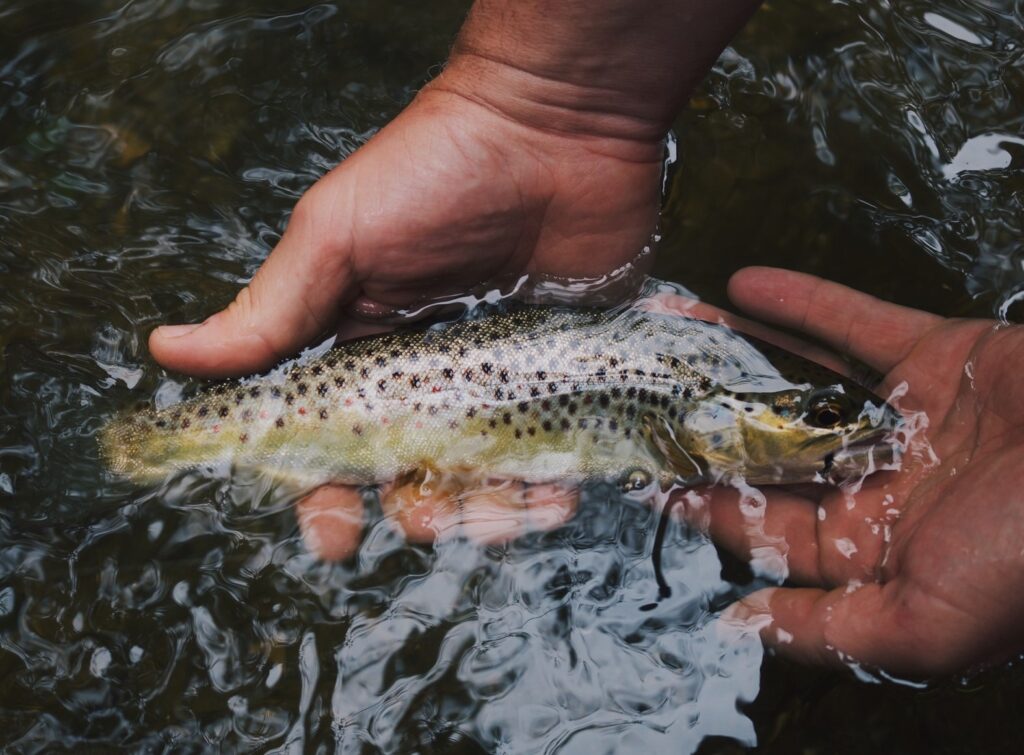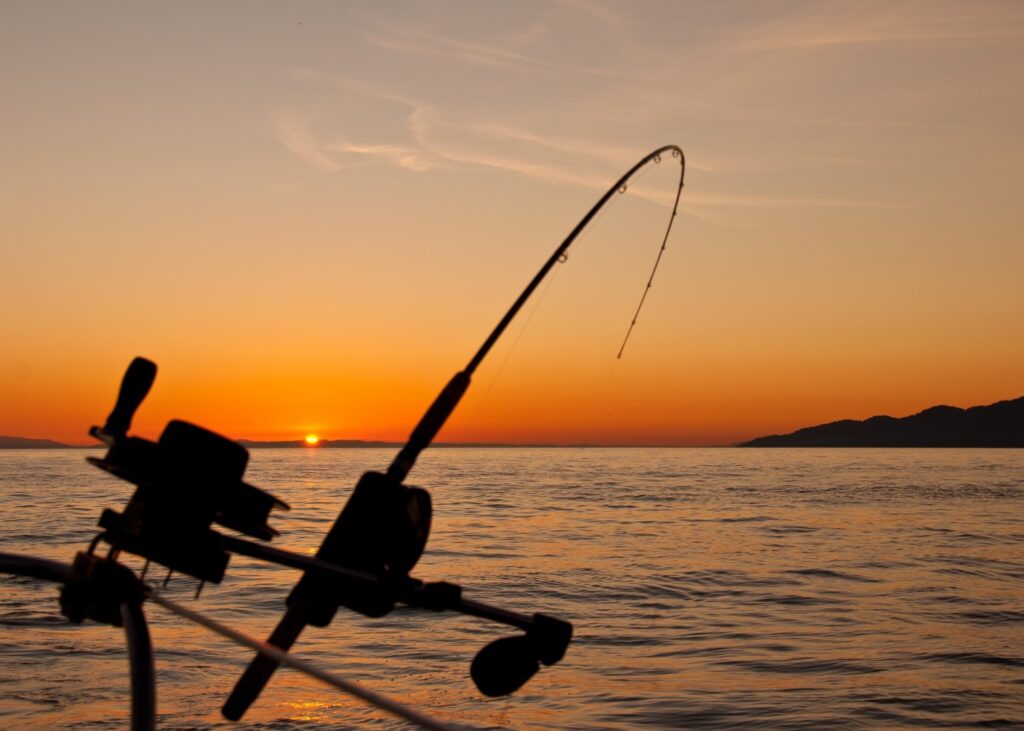Nigeria, with its vast coastline stretching over 853 kilometres, is blessed with a rich and diverse marine ecosystem. The nation’s marine environment is not only ecologically significant but also plays a vital role in the livelihoods of millions of people. Fish, as a primary source of animal protein, is a dietary staple for many Nigerians. However, unsustainable fishing practices, overexploitation, and environmental degradation pose serious threats to the marine ecosystem and the livelihoods that depend on it. This article explores the importance of sustainable fishing practices in Nigeria and their critical role in preserving the country’s marine ecosystems.
Nigeria’s marine ecosystems comprise a wide range of habitats, including coastal wetlands, mangroves, estuaries, and open waters. These environments support an impressive diversity of species, from fish and crustaceans to sea turtles and seabirds. The marine ecosystem in Nigeria plays several vital roles:

1. Biodiversity Conservation: These ecosystems serve as crucial breeding, feeding, and nursery grounds for various marine species. Many species of fish and invertebrates rely on these areas for their lifecycle, making the preservation of these habitats essential for maintaining biodiversity.
2. Food Security: Nigeria’s marine resources provide a substantial portion of the nation’s animal protein, serving as a primary source of sustenance for millions. Fish and other marine products are affordable sources of nutrition, particularly for coastal communities.
3. Livelihoods and Employment: The fishing industry is a significant source of employment and income for many Nigerians. Small-scale fishers, in particular, depend on these resources for their daily livelihoods.
4. Economic Contribution: The fishing industry also plays a considerable role in the national economy, contributing to both GDP and export revenue. Sustainable fisheries can contribute to economic growth while supporting coastal communities.
Despite the importance of Nigeria’s marine ecosystems, they face a multitude of threats. Unsustainable fishing practices, pollution, habitat destruction, and climate change are some of the primary factors jeopardising the health of these vital ecosystems.
1. Overfishing: One of the most significant threats is overfishing. The demand for fish has led to excessive fishing efforts, which, if left unregulated, can deplete fish stocks to unsustainable levels. Overfishing not only endangers the survival of various fish species but also disrupts the delicate balance of the ecosystem.
2. Destructive Fishing Practices: Some fishing methods, such as dynamite fishing and bottom trawling, are highly destructive to the marine environment. Dynamite fishing, in particular, results in habitat destruction, killing not only the targeted fish but also other marine life and coral reefs.
3. Pollution: Pollution from land-based sources, such as agricultural runoff, industrial discharges, and plastic waste, has a detrimental impact on marine ecosystems. Pollution can lead to toxic algal blooms, reduced water quality, and harm to marine species.
4. Habitat Destruction: Coastal development, including urbanisation and infrastructure projects, often leads to the destruction of mangroves, which are critical breeding grounds for many fish species. Loss of mangroves results in a decline in fish populations.
5. Climate Change: Rising sea temperatures and ocean acidification, driven by climate change, can have significant consequences for marine life. These changes can affect the distribution and abundance of fish species and disrupt the balance of the ecosystem.
Sustainable fishing practices are essential for ensuring the long-term health and resilience of Nigeria’s marine ecosystems. Sustainable fisheries management aims to maintain fish populations at levels that can support ongoing fishing activities while minimising the negative impacts on the ecosystem. Some of the key elements of sustainable fishing practices include:

1. Fishery Management: Effective fishery management is crucial for regulating fishing activities and preventing overfishing. This involves setting catch limits, establishing seasonal closures, and implementing size limits to protect vulnerable or juvenile fish.
2. Bycatch Reduction: Bycatch refers to the unintentional capture of non-target species, often resulting in their injury or death. Sustainable practices focus on reducing bycatch through the use of selective fishing gear and techniques.
3. Habitat Protection: Protecting critical habitats, such as mangroves, seagrass beds, and coral reefs, is fundamental to maintaining fish populations. Regulations should prevent the destruction of these habitats through activities like coastal development.
4. Monitoring and Research: Continuous monitoring of fish stocks and the marine environment is essential for making informed management decisions. Scientific research helps in understanding the impacts of fishing on the ecosystem and the health of fish populations.
5. Community Involvement: Engaging local communities, especially those directly dependent on fishing, is crucial for the success of sustainable fishing practices. Empowering these communities with the knowledge and resources to practice sustainable fishing can lead to more responsible behavior.
Several initiatives and projects in Nigeria are working towards sustainable fishing practices and the preservation of marine ecosystems. These case studies demonstrate the potential for positive change:
1. The Nigerian Conservation Foundation (NCF): NCF has been actively involved in marine conservation and sustainable fisheries management. They have worked on projects related to mangrove protection, marine biodiversity conservation, and community engagement in sustainable fishing practices.
2. The Nigerian Fisheries Society (NFS): NFS is an organisation that promotes responsible and sustainable fisheries practices. They offer training and capacity building for fishers, fisheries managers, and researchers to promote best practices.
3. Community-Based Fisheries Management: Several coastal communities in Nigeria have implemented community-based fisheries management plans. These plans include regulating fishing seasons, protecting nursery areas, and establishing no-fishing zones to allow fish populations to recover.
4. Banning Destructive Fishing Practices: The Nigerian government has taken steps to ban destructive fishing practices like dynamite fishing. Enforcing these bans is critical for reducing habitat destruction and the negative impacts on fish populations.
5. Research and Data Collection: Various research institutions in Nigeria are actively engaged in collecting data on fish populations and marine ecosystems. This data is used to inform fisheries management and conservation efforts.
While there have been positive developments in promoting sustainable fishing practices in Nigeria, several challenges remain. These challenges need to be addressed to ensure the long-term preservation of the marine ecosystems:
1. Lack of Enforcement: Existing regulations and bans on destructive fishing practices are often poorly enforced, allowing such practices to persist. Strengthening enforcement mechanisms and increasing penalties for violations is crucial.
2. Poverty and Overfishing: Many small-scale fishers rely on fishing for their livelihoods, which can lead to overfishing in the absence of alternative income opportunities. Addressing poverty and providing alternative livelihood options is vital to reduce fishing pressure.
3. Lack of Awareness: Many fishers and coastal communities may not be aware of the importance of sustainable fishing practices or the consequences of overfishing. Educational programs and awareness campaigns are needed to address this issue.
4. Climate Change: The impacts of climate change on marine ecosystems are a global challenge. Nigeria must contribute to international efforts to mitigate climate change and adapt to its consequences.
5. Data and Research Gaps: There is a need for more comprehensive data collection and research on Nigeria’s marine ecosystems. This information is essential for making informed management decisions.
Sustainable fishing practices are not just an environmental necessity but also a social and economic imperative for Nigeria. Preserving the country’s marine ecosystems is crucial for maintaining biodiversity, ensuring food security, supporting livelihoods, and contributing to the national economy. While there are challenges to be addressed, initiatives and organisations are actively working to promote responsible fishing practices and protect the marine environment.
The Nigerian government, in collaboration with non-governmental organisations, researchers, and local communities, must continue to prioritise sustainable fishing practices. This includes enforcing existing regulations, raising awareness, and providing alternative livelihood options for fishers. With concerted efforts, Nigeria can strike a balance between human needs and environmental preservation, securing a sustainable future for its marine ecosystems and the communities that depend on them.
Sources
- https://guardian.ng/property/group-calls-for-sustainable-fishing-protection-of-marine-ecosystem/
- https://lawjournal.ub.ac.id/index.php/law/article/download/958/134
- https://www.researchgate.net/publication/49310723_Integrating_Climate_Change_into_Conservation_and_Management_of_Marine_Fisheries_Resources_A_Study_of_the_Sustainable_Development_of_Marine_Fisheries_in_Nigeria
- https://www.intechopen.com/chapters/59865




